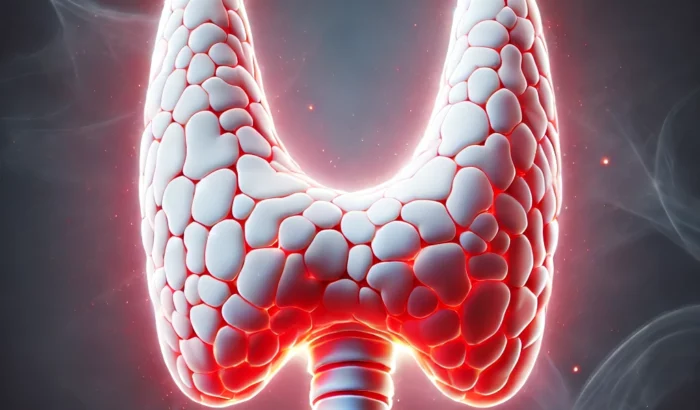Tilly Rose: A Patient’s Story of Resilience, Red Tape, and Rethinking Rare Disease Care
In the complex world of healthcare, patients with rare diseases and complex conditions often find themselves at the mercy of a system riddled with red tape. Tilly Rose, a UK-based patient advocate, author, and founder of That Patient Collective, has become a voice for those navigating these challenges. Her personal journey through years of misdiagnoses, systemic delays, and ultimately seeking treatment abroad highlights the urgent need for change in how healthcare systems approach these conditions.
The Long Road to Diagnosis
Tilly’s health struggles began in childhood. By the age of 10, she was experiencing debilitating symptoms that left her unable to attend school. What followed was a 13-year odyssey through the UK healthcare system, marked by inconclusive tests, multiple misdiagnoses, and mounting frustration. Despite her deteriorating health, Tilly demonstrated remarkable resilience—teaching herself from home and later securing a place at Oxford University.
It wasn’t until her early twenties that Tilly was finally diagnosed with active tuberculosis (TB). For years, her symptoms had been misattributed to psychological or less severe physical causes, leading to prolonged suffering and a lack of appropriate treatment. Her experience echoes the challenges faced by many rare disease patients: diagnostic delays caused by a lack of awareness, inadequate research, and rigid healthcare protocols.
A Critical Operation Abroad
After years of fighting for answers, Tilly underwent a specialist vascular compression operation in Germany. This procedure was aimed at addressing a compression of her left renal vein—a condition that could potentially impact blood flow and organ function. It was a pivotal step in her health journey, offering hope for relief from some of her most persistent symptoms.
However, despite the operation, Tilly soon descended into another emergency metabolic crisis —similar to one she had experienced in London in 2022. In that earlier episode, UK doctors were left stumped after the Poison Unit dismissed the theory that heavy metals were to blame, citing a lack of evidence for how such toxins could have built up in her system.
A Breakthrough in Germany
When Tilly’s metabolic crisis reappeared in 2024, the doctors in Germany approached the situation with a different perspective. While no one could initially pinpoint the root cause, they managed to control her rising lactate levels by placing her on an oxygen machine. This intervention stabilised her condition temporarily but left unanswered questions about why her body was reacting this way.
It wasn’t until heavy metal poisoning was revisited as a potential cause that the pieces began to fall into place. A German doctor explained that “all hints now lead to mitochondriopathy—an illness where your in-cell power plants don’t work as expected. I think this is caused by your kidneys being ‘suffocated’ from your left renal vein compression, meaning no toxins have been leaving your body for years.”
This theory illuminated a cascade of events: the vascular compression had impaired her kidneys’ ability to detoxify her system, leading to the accumulation of harmful substances, including heavy metals. This breakthrough provided a clear explanation for years of symptoms and crises that had baffled doctors in the UK.
 Image from @thattillyrose instagram, 2024
Image from @thattillyrose instagram, 2024
Navigating the UK Healthcare System
Tilly’s story is emblematic of the bureaucratic barriers within the NHS. While the NHS aims to provide equitable care, its layered processes often result in delays that are particularly detrimental for patients with complex or rare conditions.
For Tilly, these delays were compounded by the lack of coordination between specialists, prolonged referral timelines, and an overall tendency to prioritise cost-efficiency over proactive care. These systemic inefficiencies not only extended her suffering but also risked worsening her conditions.
The Power of Patient Advocacy
Throughout her journey, Tilly has emerged as a powerful advocate for patients. Her Instagram account, @thattillyrose, chronicles her personal experiences, offering a raw and honest glimpse into life with complex and rare conditions. She also founded That Patient Collective, a platform that brings together stories, resources, and support for individuals navigating invisible illnesses.
Tilly’s advocacy underscores the importance of self-advocacy in healthcare. Her determination to push for answers and seek solutions abroad is a testament to the resilience required of patients in navigating the system.
The Need for Research and Reform
Tilly’s experiences highlight critical issues in the healthcare system, including a reliance on narrow diagnostic pathways, insufficient testing for rare or unusual conditions, and systemic delays. Her story also underscores the importance of increased investment in research for rare diseases and under recognised conditions like heavy metal poisoning and vascular compressions.
Healthcare systems must work to reduce red tape, streamline referral processes, and adopt a more holistic, patient-centred approach to care. These changes would ensure that conditions like Tilly’s are diagnosed and treated promptly, sparing patients’ years of unnecessary suffering.
A Call to Action
Tilly Rose’s journey is both a cautionary tale and a call to action. Her story reminds us that healthcare must prioritise the human element—listening to patients, advocating for their needs, and breaking down barriers to care.
For healthcare professionals and pharmaceutical marketers, the question is clear: Are you putting patients like Tilly at the heart of your work? Are patient stories and advocacy woven into your messaging and strategies? By doing so, we not only foster deeper connections but also contribute to a more effective and compassionate healthcare system.
Tilly’s path to the right treatment and recovery is ongoing. To learn more about her story and advocacy, follow her on Instagram at @thattillyrose.
 Image from @thattillyrose instagram, 2024
Image from @thattillyrose instagram, 2024
Resources
Rose, T. (2024) Instagram profile of Tilly Rose, Login • instagram. Available at: https://www.instagram.com/thattillyrose/ (Accessed: 18 November 2024).
‘I went to Oxford with undiagnosed TB’ (no date) BBC News. Available at: https://www.bbc.co.uk/news/av/uk-england-oxfordshire-46824909 (Accessed: 18 November 2024).
Rose, T. (2023) Tilly rose – Invisible illness, Patient Collective. Available at: https://www.thatpatientcollective.com/post/tilly-rose-invisible-illness (Accessed: 18 November 2024).






